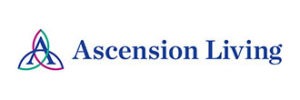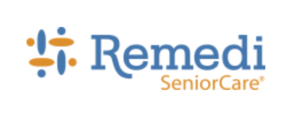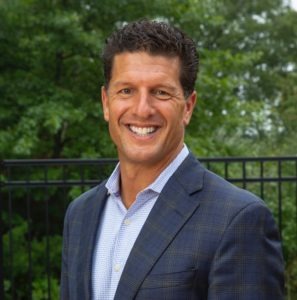The Relationship Between Senior Care and Pharmacy Solutions: Part 2
 When medications are properly prescribed and used, they improve seniors’ quality of life and can even be life-saving. But improper use can be harmful or deadly.
When medications are properly prescribed and used, they improve seniors’ quality of life and can even be life-saving. But improper use can be harmful or deadly.
Senior care and post-acute care facilities play an important role in improving patient health and safety, but they need to overcome multiple challenges to do this effectively.
In the first part of this two-part series, we discussed some of these medication management challenges and pharmacy solutions to them, including medication packs. In this installment, we take a look at a few other options.
Pharmacy Patient Wellness Programs
Senior care facilities can also draw inspiration from evolving pharmacy patient wellness programs. Pharmacies are increasingly offering programs on topics like smoking cessation, weight management, and other important health topics to provide comprehensive health support to older adults.
In addition to providing information, these programs can take a more active role in participants’ lives by evaluating them for disease risk factors and providing participants with a health action plan.
Caregiving facilities can embrace a similar model and offer similar programs within the facility. This can be an ideal option for assisted living facilities where residents retain more independence. Such programs may help seniors to prevent or better manage significant health issues, meaning they may need less (or no) medication as a result.
Medication Therapy Management
Medication therapy management services are an integral aspect of ensuring that older adults get the best and safest results from their medications. Performed by health care providers and pharmacists, medication therapy management can be a multi-prong approach. According to the Centers for Disease Control and Prevention, medication therapy management may include medication reviews, the creation of medication action plans to arrive at certain results, and can even consist of teaching older adults about how to use their medications properly.
 Dr. Anne Berg, PharmD, a consultant pharmacist for Ascension Living, notes that medication therapy management can be particularly important during care transition periods in seniors’ lives. “You have to resolve the medications a patient has been on at home, as well as what they’ve taken in the hospital. Sometimes there are duplications that occur. When a senior is a new patient at a facility, it’s so important to focus in and identify any inconsistencies with their care.”
Dr. Anne Berg, PharmD, a consultant pharmacist for Ascension Living, notes that medication therapy management can be particularly important during care transition periods in seniors’ lives. “You have to resolve the medications a patient has been on at home, as well as what they’ve taken in the hospital. Sometimes there are duplications that occur. When a senior is a new patient at a facility, it’s so important to focus in and identify any inconsistencies with their care.”
In addition to removing potential medication interactions, medication therapy management can help to ensure seniors take their medications properly, increasing their safety. The process may also help to identify ways seniors can save money on their prescriptions.
Facilities can make medication therapy management a standard and required aspect of care for every patient. Dr. Berg suggests facilities look for highly knowledgeable medication therapy managers who bring their experience and nuanced knowledge to their work with patients.
“Having experience in different fields can help, since these consultants see different types of treatments for patients through their work. It’s important to hire someone who knows the guidelines for proper treatments for the different types of conditions they’ll be handling at a facility,” she says. By hiring an independent consultant or by putting a pharmacist on staff, facilities can establish consistency and accuracy in a senior’s medication program from the very start.
Electronic Health Records and Medication Management Systems
 Electronic health records offer facilities many benefits. They can contribute to improved medication accuracy, alerting nurses and doctors to potential interactions and known patient allergies. E-scribing also helps to ensure accurate dosage and administration. These systems are already used in hospitals. Implementing a central electronic health records system in a senior care facility can increase accuracy and patient safety.
Electronic health records offer facilities many benefits. They can contribute to improved medication accuracy, alerting nurses and doctors to potential interactions and known patient allergies. E-scribing also helps to ensure accurate dosage and administration. These systems are already used in hospitals. Implementing a central electronic health records system in a senior care facility can increase accuracy and patient safety.
Remedi SeniorCare’s Formulary Management software also puts technology to work to ensure patient health and safety. It offers an additional important benefit, since it can lead to financial savings for patients.
The software analyzes the details of a patient’s medication regimen, then automatically transfers orders to lower-cost drugs that are clinically appropriate and still in the same class as the original medications. These choices are based on factors like safety, cost, efficiency, and administration consideration.

Jeffrey Stamps, R.Ph., president and CEO of Remedi SeniorCare
Jeffrey Stamps, R.Ph., president and chief executive officer of Remedi SeniorCare, notes that Remedi SeniorCare’s use of a clinical services center when reviewing these prescription orders is particularly important. This center is staffed by a specialized group of clinicians who deal with medication use. It allows the clinicians to focus on what matters most — the patient.
“All pharmacies prioritize getting medications out to the resident. If that’s your primary responsibility, that’s what you’re focused on — you won’t really have time to focus on formulary management,” explains Stamps. “With our clinical services center, we take that responsibility away from our dispensing pharmacies. This increases our efficiency and reduces expense for our customers.”
Implementing New Solutions
Pharmacy solutions have the potential to streamline efficiency, improve patient safety, and support a better quality of life for seniors. Stamps suggests facilities looking to incorporate pharmaceutical solutions look for “someone with real expertise in long term care pharmacy. Not every pharmacy company has the same level of expertise and same commitment to clinical and operational excellence. Find the right partner.”
Investing in pharmaceutical solutions can pay off in many ways. Whether these changes allow nurses to focus more on patients or help ensure that patients are taking appropriate medications that won’t interact with each other, by investing in these solutions, facilities can prioritize their patients’ health and safety.

Paige Cerulli is a contributing writer to i Advance Senior Care.
Related Articles
Topics: Activities , Clinical , Featured Articles , Leadership , Rehabilitation , Resident Care , Risk Management , Technology & IT











